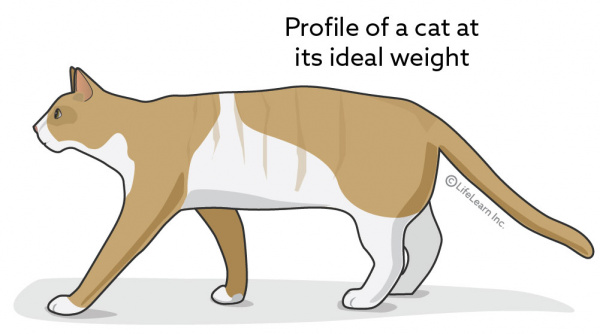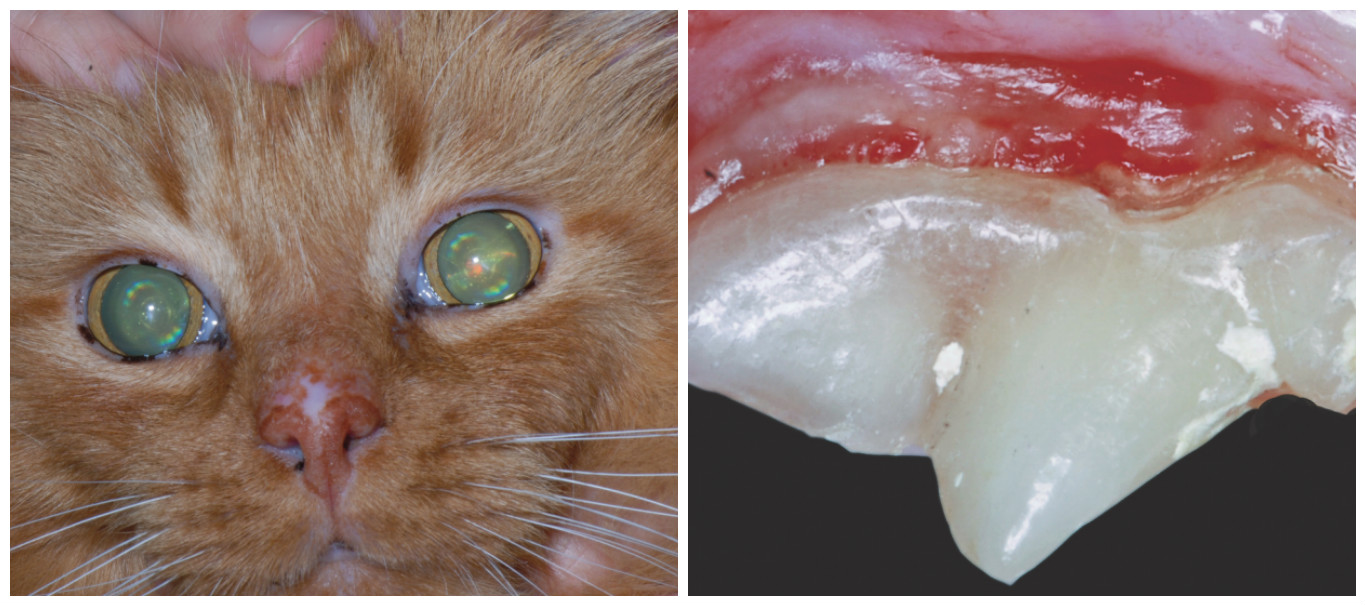
In cats a 28-fold increase in mortality has been shown in obese cats 8-12 years old compared to lean cats. It affects the cats.

Even being moderately overweight reduces a cats life expectancy.
Average lifespan of an overweight cat. The Association For Pet Obesity Prevention estimates that a full 60 of cats in America are overweight or obese. Even more shocking than that studies show that only 10 of people with an overweight cat recognize that their cat is fat. You probably have a fat cat and you dont even know it.
Fat cats are cute and adorable. The truth is its also dangerously unhealthy for your cat to be overweight. In 2015 a study was conducted by the Royal Veterinary College to find out the average lifespan of cats.
The study found that the average lifespan of domestic cats in the UK as a whole is 14 years. It is only an average lifespan but some cats are seen to live longer. Some cats have a record of living up to 30 years.
27 Zeilen Cats who spend significant unsupervised time outdoors tend to survive to be about 7 years old while indoor-only cats can be expected to live to around 14 years of age. This is especially pertinent now with roughly 20 percent of cats in the US estimated to be 11 years or older. Anyone with a cat in their life will know that theyre probably going to stick around for a while with the average lifespan of indoor house cats these days hitting an impressive 12 to 15 years.
According to one study the highest cause of mortality in over 4000 cats was trauma from outdoor activity. Your cat being overweight can also dramatically reduce their life expectancy with some estimates as high as a 6-month reduction in lifespan for every extra 2 pounds they put on. Cats are considered obese when they weight 10 to 20 percent above their ideal body weight.
This can have major side effects when it comes to the cats wellbeing and can lower their lifespan. Similar to how humans can be impacted by obesity cats joints can weaken due to. GRAPHIC PHOTOS AND CONTENT.
Twenty-four months fighting for their lives for food water a safe place to sleep warmth protection from people who torture them in a myriad of ways children who cut the ears. Average cat lifespan Cats may not really have nine lives but factors such as diet healthcare and environment can have an impact on how long a cat can live. Neutered cats tend to live longer because neutering prevents reproductive diseases and neutered cats are less likely to roam.
Even being moderately overweight reduces a cats life expectancy. In cats a 28-fold increase in mortality has been shown in obese cats 8-12 years old compared to lean cats. A large lifetime study of Labrador Retrievers found that a moderately overweight group of dogs lived nearly two years less than their leaner counterparts.
Cats that are over nourished lack the ability to exercise or that have a tendency to retain weight are at risk for becoming obese. Obesity can result in serious adverse health effects such as reducing the lifespan of an affected cat even if the cat is only moderately obese. Multiple areas of the body are affected by excess body fat including the bones and joints the digestive organs and.
Unfortunately the average lifespan of a cat is considerably shorter than the average persons. That shouldnt scare prospective pet parents away. With the appropriate care four-legged friends can live perfectly long and happy lives.
The average kitten owner can expect healthy domestic cats to live for more than a decade with an appropriate diet and healthcare regimen. Female ragdolls cats usually are 10 to 15 pounds and some males weigh more than 20 pounds. Ragdoll cat lifespan is 12 to 17 years.
Considering the genetics of this breed there are varying incidences of health concerns in both pedigreed and mixed-breed. In female cats the difference is ot quite so large being 37. Thats quite a difference nonetheless.
Indoor Munchkin Cats Although this is something you might have to wrestle with conscientiously speaking did you know that indoor cats live longer than cats allowed to go outside. Being exposed to dangers shortens their lifespan on average. According to ASPCA American Society for the Prevention of Cruelty to Animals the average lifespan of an indoor cat if a cat resides indoors exclusively ranges somewhere between 13-17 years.
It is not abnormal for cats to live at least 20 years. The lifespan always depends on the individual cat. Cats can get type 2 diabetes from being overweight just like humans.
This condition can significantly shorten your cats lifespan which is all the more reason to keep them healthy and at a normal weight. The heavier your cat gets the more at risk they are of developing this condition. Osteoarthritis is a very painful condition that plagues a lot of cats.
It affects the cats.